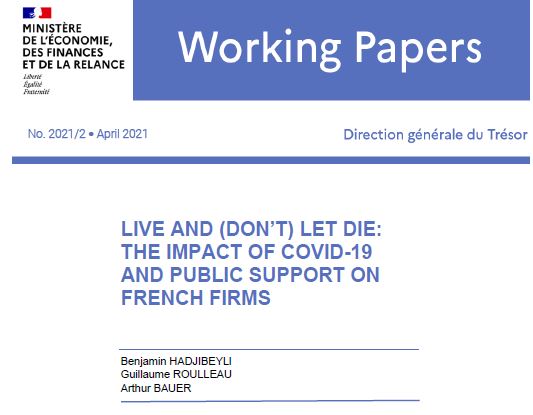The Working Paper series presents work carried out within DG Treasury, disseminated with the aim of enlightening and stimulating public debate. The authors are solely responsible for their work.
The Covid crisis has had a massive impact on the economy, especially on firms. The French Treasury has developed a microsimulation tool which allows to estimate the impact of the crisis, and of public measures taken in response to it, on financial health at the firm level. This tool is based on an accounting model similar to the one used in several publications, however it also integrates observed data at the firm level on the magnitude of the shock on firms and their use of the public support. In particular, it makes use of observed data on the evolution of the turnover, employment and payroll of firms, as well as their use of the short-time work scheme, the solidarity fund for SMEs and payroll taxes deferrals. Such a tool allows to simulate the evolution of illiquidity, insolvency and indebtedness at the firm level, taking into account the heterogeneity among firms. Results show that the financial health of firms has deteriorated in 2020 compared to a year without crisis, but public support – mostly the short-time work scheme and, for small firms, the solidarity fund – has considerably limited the increase in the number of illiquid or insolvent firms. Moreover, the impact of the crisis varies across industries and insolvency affects productive firms more than it does in normal times. Finally, the increase of firms’ debt in 2020 may impair investment during the recovery. Relying on a dynamic model of corporate investment under financial constraint, we estimate that the debt overhang caused by the crisis could reduce corporate investment by almost 2% during the recovery phase. However, a similar model shows that R&D spending could be more resilient to the deterioration of firms’ financial health.


